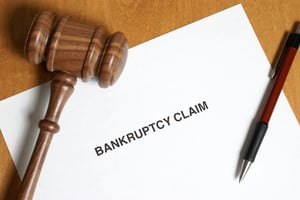 A claim in bankruptcy is a claim of money owed to a creditor, filed by or for a creditor. Proof of claims is the document the creditor will file in the court, explaining the amount owed, why it is owed, and providing supporting documentation for the debt.
A claim in bankruptcy is a claim of money owed to a creditor, filed by or for a creditor. Proof of claims is the document the creditor will file in the court, explaining the amount owed, why it is owed, and providing supporting documentation for the debt.
Creditors can file proofs of claims in both Chapter 7 asset cases and Chapter 13 cases. A Chapter 7 asset case, is where there will be distributions to creditors. In a Chapter 13 case, the plan details how claims will be treated during the bankruptcy.
There are various types of claims. Secured claims are for debt tied to collateral. Typically this is homes, vehicles, boats, land, etc. Unsecured priority claims are for unsecured debt (not tied to anything) that receives higher treatment than regular unsecured creditors. This is typically for tax debt, domestic support payments, or your attorney’s fees. Finally, unsecured claims are for your general unsecured creditors. This is any credit cards, medical, student loans, personal loans, or other debt not secured to anything.
If a creditor does not file a proof of claim in the period allowed in Chapter 7 or Chapter 13, they miss their chance and the debt will be discharged without paying anything on the claim. If the creditor files an incorrect proof of claim, it can be amended or your attorney may look at objecting to the claim, if there are grounds to do so.
In chapter 7 or chapter 13, you will receive reports of who filed a claim into your case and your attorney can provide you the claim documents, if needed.
CALL NOW FOR A FREE STRATEGY SESSION FROM AN MN BANKRUPTCY LAWYER AT LIFEBACK LAW FIRM
If you have questions about bankruptcy and would like to do a free consultation to go over your options, visit www.lifebacklaw.com to speak with an attorney. You will be glad you did!


